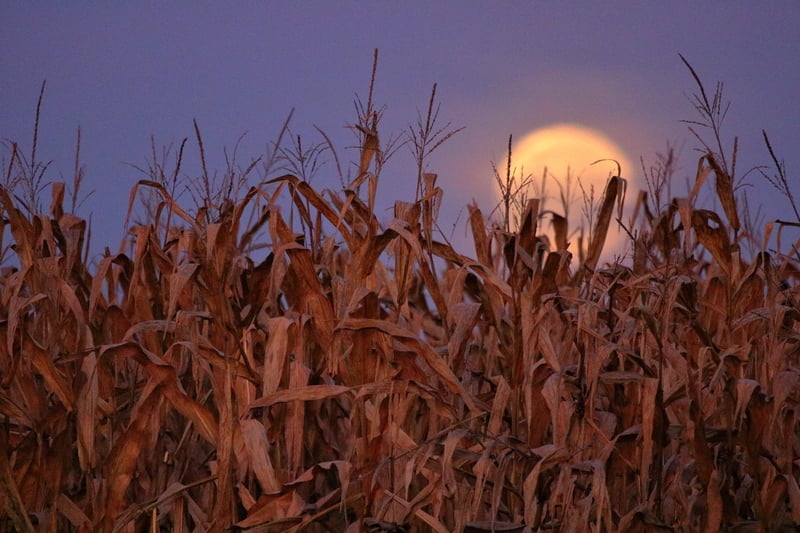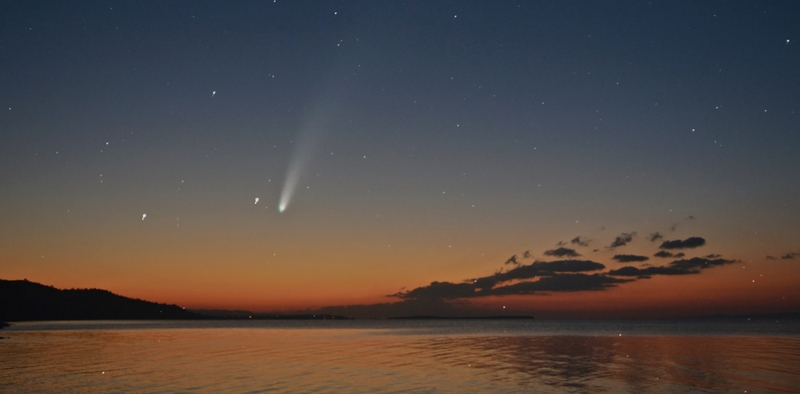Full Hunter’s Supermoon
October’s full moon, known as the Hunter’s Moon, is in its supermoon form this year, meaning it’s bigger and brighter than usual. Though it officially peaked on October 17, it will still be shining gloriously tonight, dominating the sky as it rises in the east. This is your chance to see it in all its glowing glory, so get outside right after sunset!

Comet Tsuchinshan-ATLAS
The rare and unpredictable Comet Tsuchinshan-ATLAS is making its appearance in the evening sky this month. It was closest to Earth on October 12, but it’s still visible low in the west after sunset. If you’re lucky, you might catch a glimpse of its tail—binoculars or a telescope will help bring out the details. This comet hasn’t swung by in 80,000 years, so take a moment to look up at this interstellar visitor before it fades away.
Planets On Display
Tonight’s planetary lineup is not one to miss! Jupiter, the king of planets, will be the star of the show, rising just after 10 p.m. The full moon will be hanging out near Jupiter, making for an impressive sight. Saturn is also visible in the southeast just after dark, while Mars will rise later, around midnight. Grab your telescope to spot Jupiter’s moons or even some details on its cloud belts, like the famous Great Red Spot!
If you’re in New Jersey tonight, not only do you have the Full Hunter’s Supermoon to look forward to, but the Orionid meteor shower is also peaking! The Orionids are one of the highlights of October’s sky, caused by debris from none other than Halley’s Comet. Although the waning gibbous moon will be quite bright, making it harder to spot the fainter meteors, you can still catch some spectacular Orionids—particularly if you’re in a dark area away from city lights.
The best time to see the meteors will be between midnight and dawn. Expect around 10 to 20 meteors per hour if you’re in a dark spot, though moonlight may reduce that number. The meteors will appear to radiate from the constellation Orion, so looking toward the eastern sky around 2-3 a.m. is your best bet for seeing those fast, bright streaks.
Bundle up, grab some snacks, and get comfy under the sky for this cosmic show!
With clear skies (fingers crossed!), New Jersey will offer prime views of these epic celestial bodies. So bundle up, head outside, and enjoy this cosmic display!

